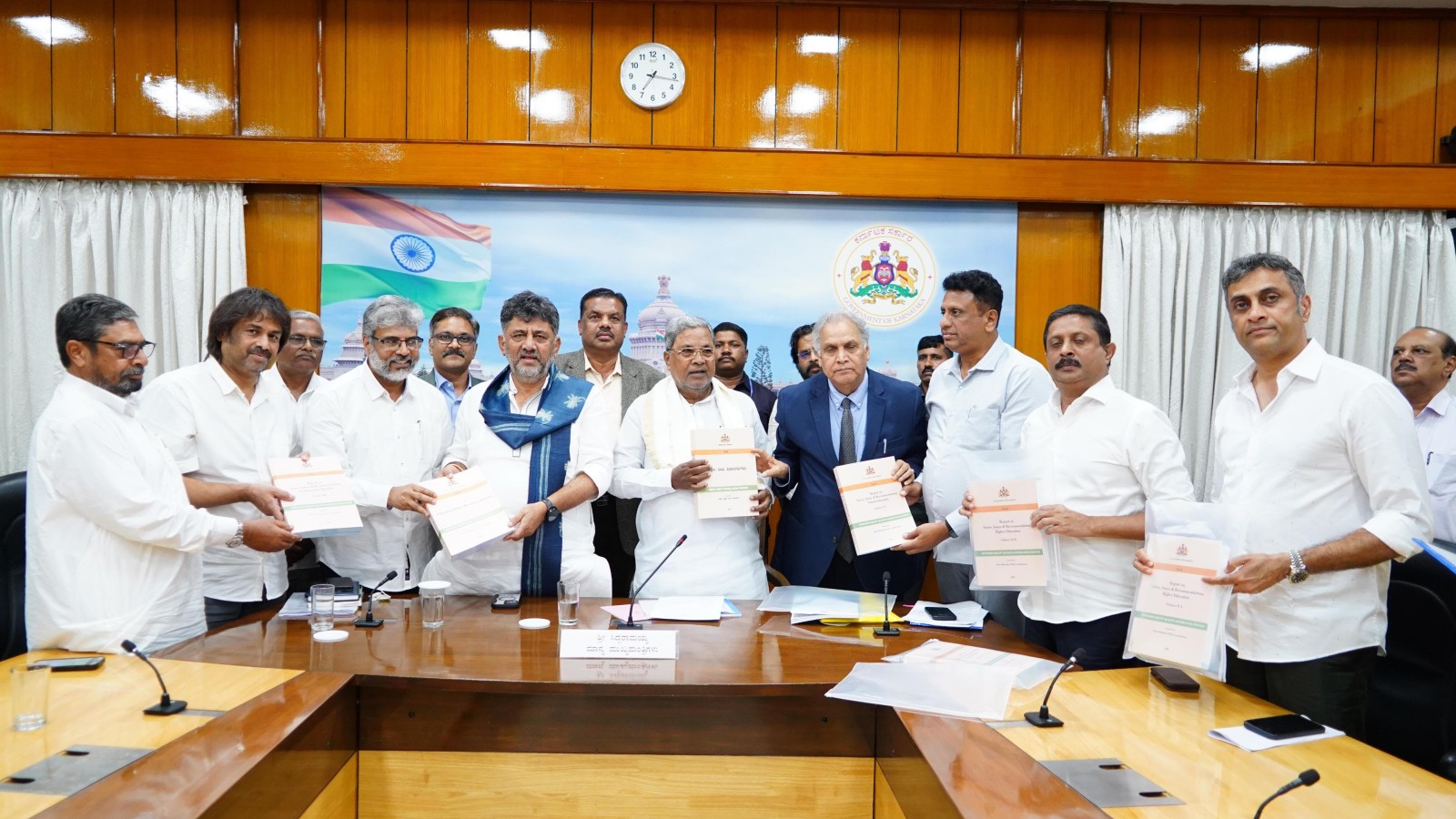 |
|
The Karnataka State Education Policy Commission's recent submission to Chief Minister Siddaramaiah marks a significant departure from the National Education Policy (NEP) 2020, signaling a clear intent to tailor educational reforms to the specific socio-cultural, linguistic, and economic landscape of Karnataka. This decision, spearheaded by economist Prof Sukhadeo Thorat, highlights the state's commitment to crafting an education system that resonates with its unique identity and addresses its distinct challenges. The proposed changes span both school and higher education, encompassing curriculum, structure, funding, and governance. One of the most striking aspects of the policy is its move away from reliance on NCERT textbooks in school education. Instead, Karnataka plans to develop a Comprehensive Curriculum for School Education (CCSE) that is localized and relevant to the state's context. This shift reflects a desire to provide students with learning materials that are more closely aligned with their lived experiences and cultural heritage. Furthermore, the policy aims to regulate private pre-primary schools through a separate framework and establish a dedicated regulator for private schools. This move is intended to address concerns related to high admission fees, age restriction criteria, and other issues that have plagued the private education sector in Karnataka. The commission has proposed a structural overhaul of the education system, replacing the NEP's 5+3+3+4 model with a simplified 2+8+4 framework. This new structure consists of two years of pre-primary, eight years of primary, and four years of secondary education. The policy also mandates that Kannada or the mother tongue be the medium of instruction up to Class 5 across all school boards, including CBSE and ICSE. This is consistent with NEP 2020's emphasis on the use of the home language, mother tongue, local language, or regional language in the early years of education. In addition to these changes, the policy introduces a two-language education model, where Kannada or the mother tongue is taught alongside English. This reflects the state's sensitivity to the issue of language imposition and its commitment to promoting linguistic diversity. The commission also proposes a substantial increase in the education budget, aiming to allocate 30 per cent of the state's total expenditure to education. This increased funding will be used to support various initiatives, including a planned 5–10 per cent annual increase in per-student spending. The establishment of the Karnataka State Open School System is another key component of the policy. This system will provide flexible learning options for dropouts and working students, enabling them to continue their education and acquire valuable skills. Furthermore, the policy makes Constitutional Values Education a compulsory subject across all schools, aiming to instill in students a strong sense of civic responsibility and ethical conduct. In the realm of higher education, the policy proposes extending the state's reservation policy to private unaided institutions, including universities, deemed universities, and autonomous colleges. This recommendation is based on Article 15 (5) of the Constitution, which allows for the implementation of SC/ST/OBC reservations in admissions within these institutions. The policy also calls for all admissions in private institutions to be brought under a transparent, merit-based, and regulated framework, ensuring fairness and accountability. The commission departs from NEP's uniform 4-year degree model by recommending a 3+2 structure for general education (3-year undergraduate + 2-year postgraduate) and a 4+2 model for professional programs. This maintains the state's pre-NEP flexibility while still enabling interdisciplinary and modular learning. Postgraduate admissions will be opened up across state universities, and the policy also proposes bilingual teaching, where Kannada (or another regional/mother tongue) is used alongside English in higher education institutions. Further, the Commission proposes the identification of State Institutions of Excellence, along with a feasibility-based approach to opening new institutions. It mandates training for all new teachers to be provided through Higher Education Teachers Academy Centers in each department. The policy also recommends offering free higher education for girls across government, aided, and unaided institutions, with financial incentives to delay child marriage. To improve research and innovation, a State Research Foundation with a seed fund of Rs 500 crore is proposed. Karnataka also plans to expand post-matric scholarships, raise income limits to Rs 10 lakh per annum, and establish a State Education Finance Corporation that will offer employment-linked education loans to low-income students. In terms of governance and administration, the policy recommends merging parallel educational bodies under a single unified commissionerate, converting DSERT into an autonomous SCERT to lead curriculum innovation, and reducing the number of regional joint director offices from six to four. It also proposes district-level academic administration units led by educationists, the establishment of Foreign Students Cells in all universities, and the creation of a Karnataka State Quality Assessment Board to help institutions meet and exceed quality benchmarks. Importantly, the policy mandates the filling of all sanctioned teaching posts within five years, and ensures that the vacancy gap remains below 5%. A recruitment model involving KEA-administered exams and university interviews is proposed for Assistant Professors, and a new selection process is outlined for college principals. The Commission officially began its work on November 1, 2023, comprising 17 members, 6 advisors, and a member secretary. It established 35 task forces—16 for school education, 16 for higher education, and 3 for vocational education—engaging a total of 379 experts. These task forces held 132 meetings, and the Commission itself met 42 times, contributing nearly 2,775 man-days of academic and policy effort. The final report is spread across three volumes, consisting of 2,197 pages. The report is expected to be placed before the state cabinet for acceptance before implementation. The scope and depth of the proposed reforms underscore Karnataka's ambition to establish a world-class education system that is both responsive to the needs of its citizens and aligned with its unique cultural and economic context. The success of this ambitious endeavor will depend on effective implementation, strong political will, and the active participation of all stakeholders in the education sector.
Source: Karnataka state education policy calls to scrap NCERT, proposes reservation in private institutions
